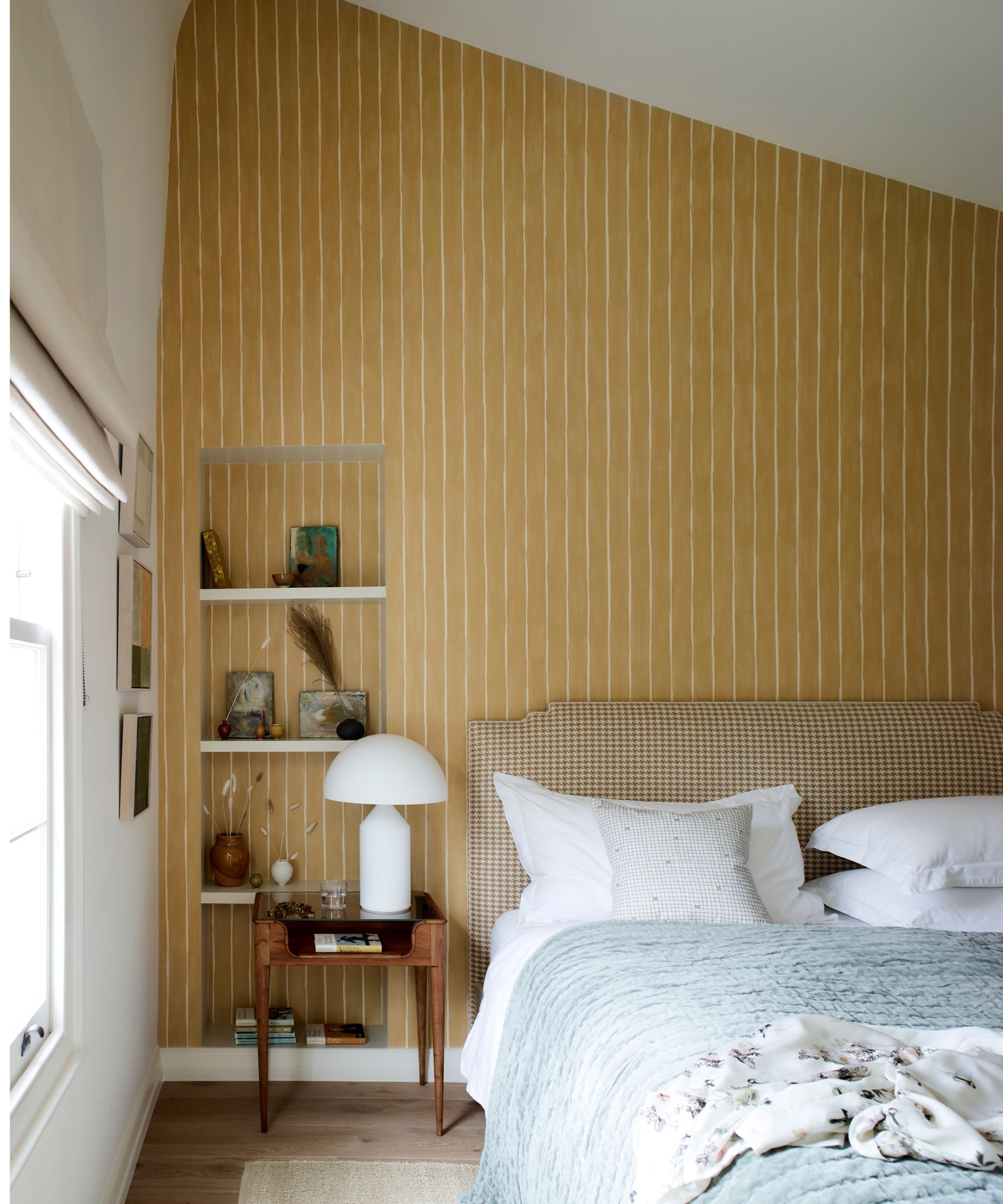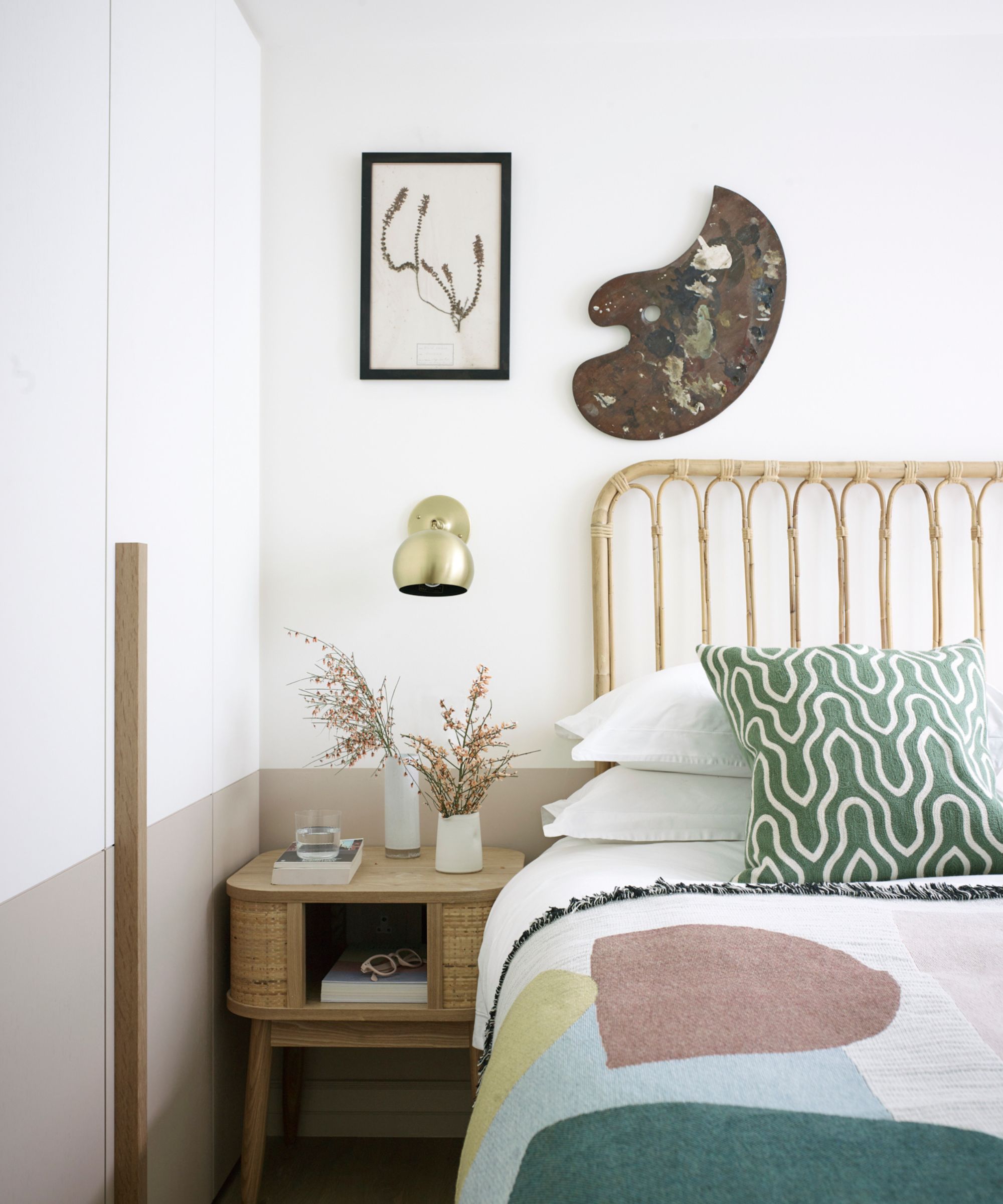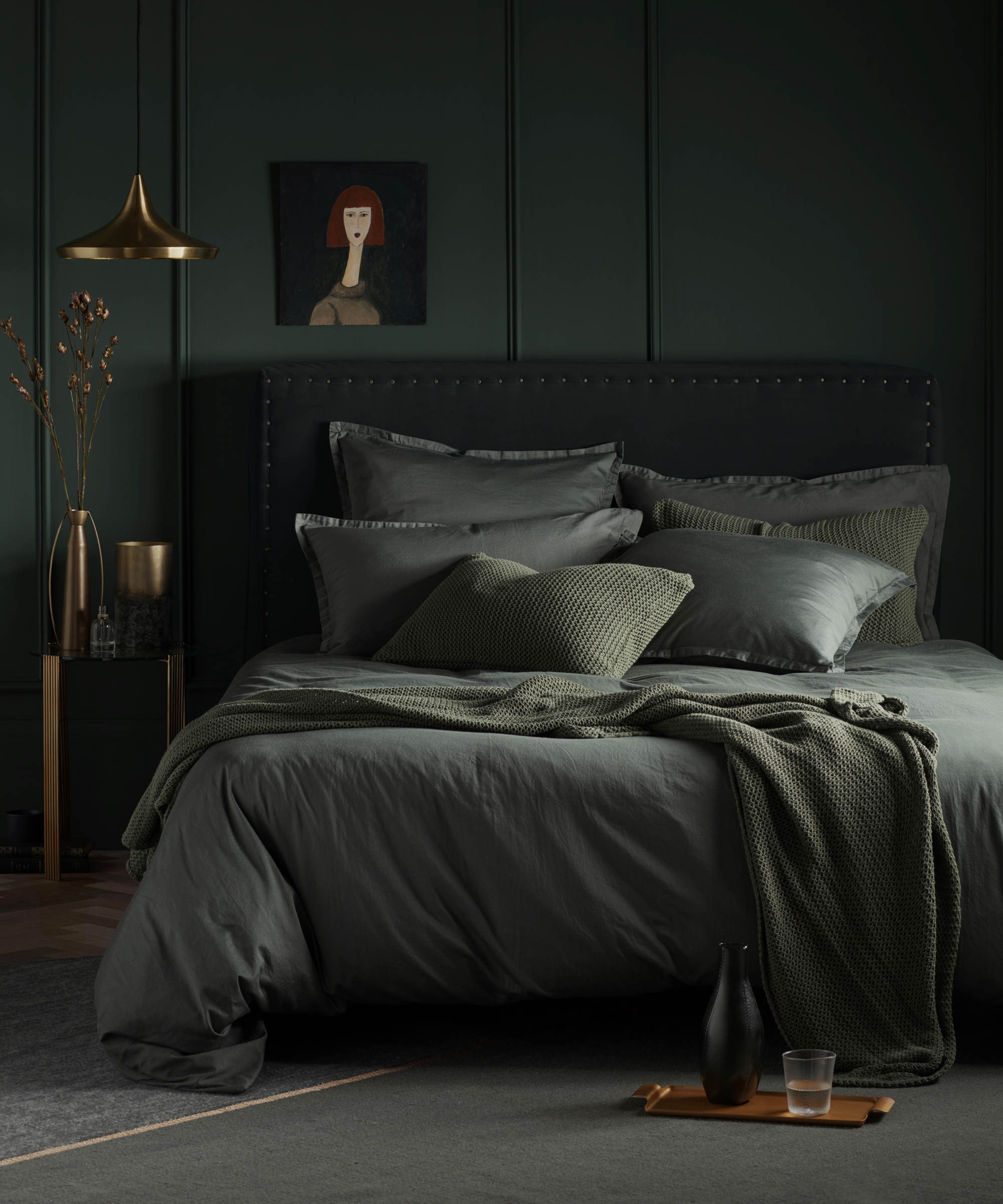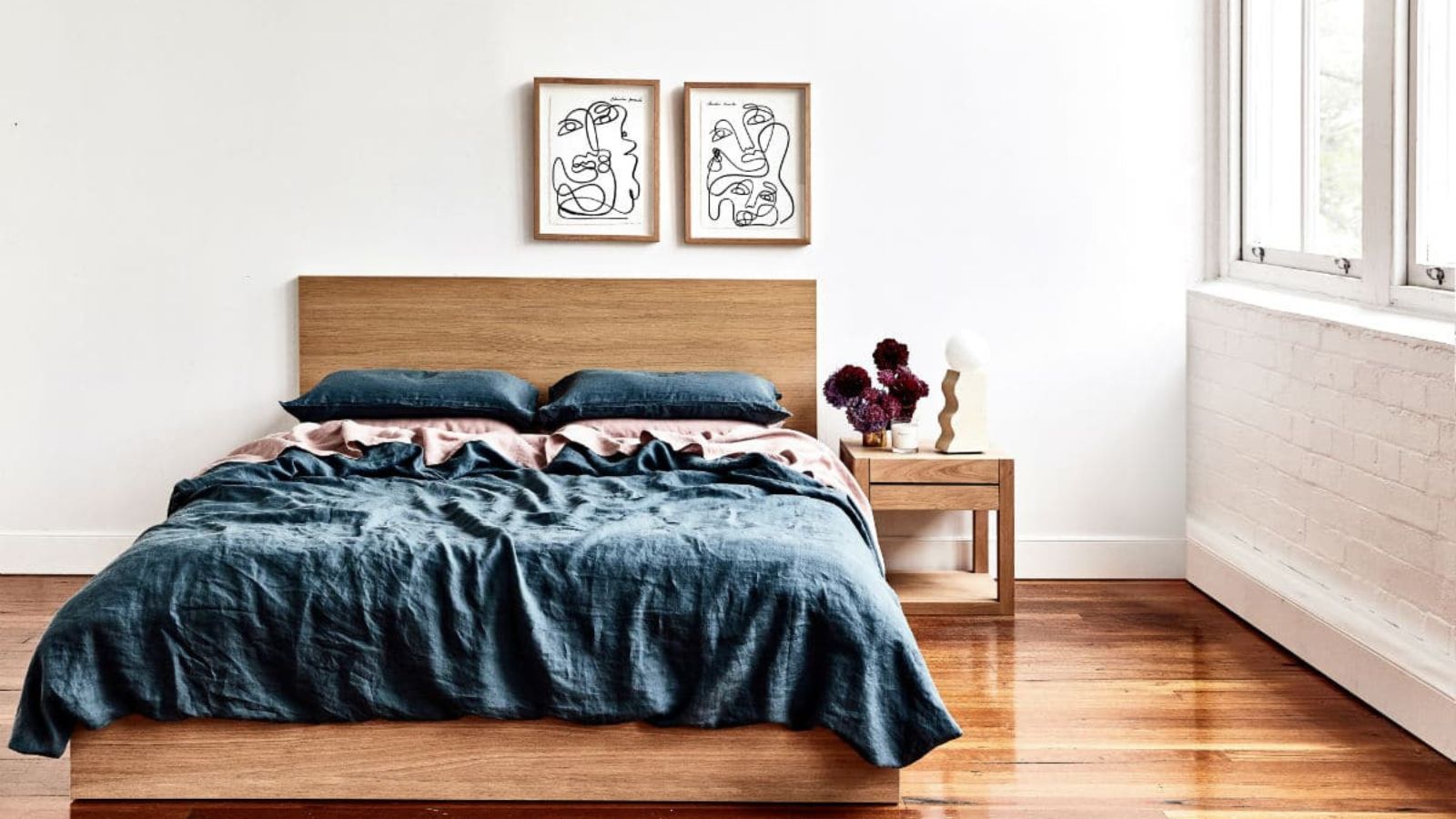How to nail your bedtime routine to get the best night's sleep (according to a sleep doctor)
Adults need an effective bedtime routine too. Here's everything you need to know about bedtime routines so that you can finally get a good night's sleep

- Why a bedtime routine is important (no matter your age)
- 1. Eat dinner at least 2-3 hours before bed
- 2. Be mindful of evening caffeine consumption
- 3. Drink alcohol only in moderation
- 4. Avoid intense exercise at night
- 5. Consider supplementing with magnesium
- 6. Turn off your devices leading up to bedtime
- 7. Limit light exposure leading to bedtime
- 8. Turn down your thermostat
- 9. Perform your pre-bedtime tasks in order each night
- 10. Modify your bedtime routine so it’s right for you

Who actually gets a full night's sleep anymore? We are constantly repeating 'I'm so tired' or 'I didn't sleep well last night'. Sleep - good quality sleep - seems like such a luxury for so many of us.
Of course, there are countless factors that influence how well you rest up each night, some of which may be beyond your control. However, if you’re committed to hacking your sleep for good, one of the best things you can do is to create and stick to a consistent bedtime routine.
Although many of us were instructed by our parents or caregivers throughout childhood to abide by a pre-sleep regimen, these healthy habits all too often fall by the wayside come adulthood. But in truth, all of us could benefit from getting in the groove of sleep-friendly habits so we can drift off into dreamland with ease and wake up refreshed by morning.
We asked the experts why a bedtime routine is crucial no matter how old you are and how to nail your own nightly ritual for better sleep.
Why a bedtime routine is important (no matter your age)

According to Nilong Vyas, MD, founder of family sleep consulting service Sleepless in NOLA, a consistent bedtime routine signals the brain that it’s time to sleep (and eventually wake). 'The routine allows the body to regulate itself and transition to the next phase within the cycle, from wakefulness to sleep,' she explains. 'The environment helps regulate hormones in the body responsible for dictating the activity of the sleep-wake cycle.'
On the flip side, the absence and/or inconsistency of a healthy bedtime routine will throw those hormones out of whack. Your body won’t quite know when to feel sleepy or wakeful, thus leading to restless nights and daytime slumps. 'When a consistent routine is established, you don't have to try to fall asleep or force wakefulness; it happens automatically.' Dr. Vyas continues.
She, too, speaks to the fact that parents go to great lengths to establish a bedtime routine for their children so they can grow and develop, promote focus in school, and stay in good health. 'We get away from that routine as we get older, but it is just as important for all age groups to have an established routine that is easy to maintain and follow.' she clarifies.
With that said, heed the following tips. Each can help you wind down at night, allowing you to fall (and stay) asleep with greater ease...

Nilong Vyas, MD, is a board-certified pediatrician, sleep coach, and founder of family sleep consulting service Sleepless in NOLA. She has a Master’s in Public Health degree from Tulane University as well as a Medical Doctorate from LSU Medical School. She now specializes in teaching families how to achieve optimal and sound sleep and has 15 years experience working in with parents in order to help them and their children get a better night's sleep.
1. Eat dinner at least 2-3 hours before bed
Erin Stokes, ND, a naturopathic doctor and medical director at MegaFood, explains that timing your dinner properly will allow you to digest food properly, which can naturally lead to better sleep. 'In addition to eating a few hours before bed, include healthy protein in your meal to balance your blood sugar levels and ensure a deeper slumber.' she adds. She recognizes that some of us may stray from this eating schedule from time to time, as well as get hungry later in the night. If and when this happens, she advises opting for a sleep-friendly snack, such as a banana with almonds or peanut butter.

Dr. Erin Stokes is a Naturopathic Doctor and Medical Director at MegaFood. She educates and advises on how to make transformative changes, by offering expert insights on lifestyle, nutrition, women’s health, postpartum health, mental wellness, and sleep issue via podcasts, webinars, and radio.
2. Be mindful of evening caffeine consumption
Dr. Stokes goes on to say that caffeine – whether via coffee, teas, and even dark chocolate – can 'negatively impact both sleep onset and duration'. This particularly applies if you consume caffeine in the evening, which is why she advises cutting off caffeine sources after 5 p.m. If you’re more susceptible to the stimulating effects of caffeine, it may be best to cease intake earlier in the afternoon or limit your caffeine consumption in general.
3. Drink alcohol only in moderation

Alcohol is another dietary disruptor that can stand in the way of quality sleep. As such, Dr. Stokes suggests limiting your intake as part of your new and improved bedtime routine. 'Since alcohol is a central nervous system depressant, it often makes it easier to fall asleep. But the problem is that even small amounts of alcohol can prevent people from reaching the deeper states of sleep that are crucial for feeling rested and refreshed in the morning.' she explains. For instance, research shows that alcohol delays and reduces REM sleep, 'an important phase of sleep where memory consolidation, processing new learnings, and dreaming happens.' All things considered, that nightcap won’t do your sleep any favors, so avoid them whenever possible.
4. Avoid intense exercise at night
As we can see, the makings of a healthy bedtime routine start well before it’s time to put the lights out. On that note, Dr. Vyas suggests skipping strenuous workouts at least two hours before bed 'so that the body is not fighting to balance excitatory hormones released during exercise with tranquilizing ones.' Dr. Stokes agrees that higher-intensity exercises are best for earlier in the day. However, she says that a leisurely evening walk can help you unwind from the day’s stressors and ultimately prepare your body for sleep. 'The fresh air and sounds of nature are soothing to the nervous system.' she adds.
5. Consider supplementing with magnesium

Magnesium – which Dr. Stokes says is all too often lacking in American diets—can be a beneficial addition to your bedtime routine. 'It can help ease muscle tension and promote a sense of calm and relaxation.' she explains. She says that she takes a magnesium supplement nightly to help her unwind at night. 'Many people also like to wind down with a warm bath or shower before bed,' she adds, and taking a magnesium-rich Epsom salt bath may also help do the trick.
6. Turn off your devices leading up to bedtime
'The advent of cell phones, unlimited streaming services, and social media draw our attention to participating in these activities that stimulate our dopamine receptors.' Dr. Vyas warns. All of this stimulation too close to bedtime 'makes it easier to ignore our body's cues and signals indicating that it's sleepy or tired. When we push those sleepy feelings aside, our body stops releasing the hormones responsible for sleep, creating a surge of wakefulness.'
To prevent your tech usage from dysregulating your hormones and getting in the way of a good night’s rest, cease device use at least an hour before bedtime. 'If bedtime is 10:30, turn off devices at 9:30 so that the blue light from the device does not dampen the melatonin (sleep hormone) release,' she advises. Even better: charge your phone outside of your bedroom to avoid temptation to check it or default to scrolling in bed. Dr. Stokes notes that she sets an alert an hour before bedtime to signal it’s time to get off screens. By following her lead, you’ll get a nightly reminder that it’s time to wind down for bed, as well as stick to a consistent pre-zzzs schedule.
7. Limit light exposure leading to bedtime

One of the best ways to set your sleep environment up for success is to get the lighting right. However, pitch black darkness doesn't have to be the goal if you’re not ready to snooze just yet. 'Dim lights as or before the bedtime routine starts, as this will signal the brain to begin increasing its melatonin production.' Dr. Vyas suggests.
8. Turn down your thermostat
The best temperature for sleep is personal but crucial to a good night's rest. For most, the perfect temperature is cooler than the day, so 'set the thermostat to cool automatically to a couple of degrees lower than daytime comfort temperatures to help the body fall asleep quicker,' Dr. Vyas advises. Don’t have a central heating/cooling system in place? Consider turning on the AC as you kick off your bedtime routine – whether you choose to run it all night, or set a timer for it to turn off as you’re resting – and/or keep a fan on nearby. Investing in the best cooling sheets and the best cooling mattres will help if you sleep hot too.
9. Perform your pre-bedtime tasks in order each night

According to Dr. Vyas, it’s important to perform the same rituals in a sequential order each and every night. 'For example, a sample routine could include brushing teeth, washing your face, putting on cozy but cool pyjamas, and reading a book in bed.' she shares. Again, consistency is key. By following the same patterns, your body will come to understand that these nightly to-dos indicate it’s time to wind down and rest up.
10. Modify your bedtime routine so it’s right for you
Each of the tips above can help you establish better sleep hygiene. But ultimately, the best bedtime routine will be one that you enjoy and can actually carry out each night. As such, doing a complete 180 might not be the most sustainable option, so pick and choose a few sleep-friendly habits that you can integrate into your nightly regimen one at a time. ;Find a routine that is easy to follow,''Dr. Vyas advises. “Start slow and add on so you can stay consistent.' Dr. Stokes concurs, stating that 'our bodies love habit and will start to respond when you develop a routine that works for you.'
Sign up to the Homes & Gardens newsletter
Design expertise in your inbox – from inspiring decorating ideas and beautiful celebrity homes to practical gardening advice and shopping round-ups.
Michele Ross is a freelance wellness writer based in Los Angeles. Her specialties include nutrition, gut health, sleep, mental health, and fitness.
-
 Emily Blunt gifted Cillian Murphy this $545 pillow – she's 'obsessed' with these luxury pillows, and frankly, so are we
Emily Blunt gifted Cillian Murphy this $545 pillow – she's 'obsessed' with these luxury pillows, and frankly, so are weThe Oppenheimer stars sleep on this ultra-luxe goose down pillow – here's why we love it – plus our affordable alternatives from $35
By Sophie Edwards Published
-
 The great bedding debate: top sheet vs no top sheet − which side are you on?
The great bedding debate: top sheet vs no top sheet − which side are you on?I asked an expert panel of bedding designers whether you really need a top sheet to keep clean and cool or if it's just another ploy to make you spend money
By Emilia Hitching Published